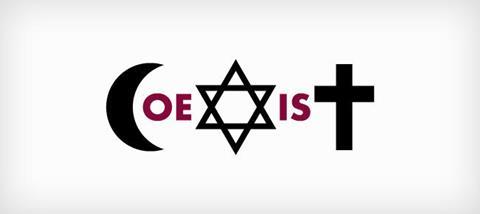
It was a rather grey and unremarkable Saturday afternoon at our Baptist training college. But being asked a question like this can make a dull day memorable: “Do Christians Muslims and Jews worship the same God?” asked our tutor.
So, we scuttled off into those bothersome small groups, as one is expected to do, and, if I remember rightly, we all came back with pretty much the same answer. The answer that felt right, and was theologically acceptable: Christians and Jews worship the same God, Yahweh of the Old Testament, but Muslims do not. Easy peasy!
Of course, that was the answer our tutor was expecting. “Are you certain?” he said. “Oh yes, pretty certain,” we replied (suddenly feeling less certain).
“Why?” he asked. “Well,” (glancing around for reassurance) “for a start Muslims don’t believe that Jesus is God”.
“Neither do Jews” he replied. “If you accept Jews as sons and daughters of Abraham why do you reject Muslims as sons and daughters of Abraham? Why isn’t it the same God?”
He continued to unravel our thinking.
Sometimes you must unpick an idea in order to reconstruct something more robust. That’s what I want to do here. Questioning our inbuilt assumptions and prejudices may be particularly pertinent as we see renewed levels of violence between Muslims and Jews in Gaza, and see no let-up to extremist religious terrorism in Europe.
Let’s start with an easier question – I hope
Do Christians, Muslims and Jews seek the same God? Think about this before reading on.
It’s not a trick question. Surely, it’s “yes”, at least for the clear majority of us:
- All three faiths claim there is only one God
- All three faiths seek this one God
- There is only one God
- It must be the same God!
Any devout seeker of God is seeking the one true God. That may seem obvious but sometimes we need to state the obvious. OK, let’s carry on.
A slightly harder question
Does God hear the prayers of people who follow these different religions?
Perhaps surprisingly the answer appears to be yes. Some of us may think the one true God only listens to prayers directed to him, in his name, in the name of Jesus, but that is not biblical.
The easiest example in scripture is that of Cornelius in Acts 10. Cornelius is a Roman centurion, neither Christian nor Jew, a Gentile. But he is called a devout “God fearer”, and the angel from God tells him God has heard his prayers and seen his gifts to the poor. After that Peter brings him the good news of Jesus. But God heard his prayers before that point.
So, it seems that God may reach people in ways we would not expect. Salvation is only found in Jesus Christ (Acts 4.12): “there is no other name under heaven given to men by which we must be saved”. I believe that, but I can’t limit the ways in which Jesus chooses to work, the ways he chooses to reach people.
That shouldn’t surprise us. After all, nobody in the Old Testament called on the name of “Jesus”, and yet we understand there is salvation for Abraham, for Moses, for Job. Moreover, many would consider that today God may somehow apply the work of Christ to infants who die before they have a chance to ever articulate the name of Jesus, for example.
God works to reveal Christ in ways that go way beyond my limited understanding, and I’m glad he does.
Back to the starting question
Ok so Christians, Muslims and Jews seek the same God, and this one God may hear their prayers, or respond to their acts of kindness as he chooses to do, rather than what you or I tell him to do. So do we in fact all worship the same God, albeit with different names?
Interestingly, many Muslims believe we do worship the same God. They say that Christianity is a corruption of the one true faith, which Islam corrects. They say Jesus was born of a virgin, he was a revered prophet, but he was not God and he did not die on the cross (despite evidence even from secular scholars that he did).
But from our (Christian) perspective, there remain major differences between Christian and Muslim depictions of God.
The “what” and “who” of the one God we both seek is different. Yes, we seek the one true God, as do Muslims (that’s the “what” taken care of), but the “who” is not the same. The person of God characterized in the Bible turns out to be very different to the person of Allah characterized in the Koran. Allah and Yahweh are different. And the claims of Jesus are also sufficiently different that they do matter. There are major differences on salvation, sin and eternity, among other things.
Whereas we can regard Jews as having a true, but incomplete revelation of God, there remain major discrepancies between Christian and Muslim understandings of who this God is.
But hang on! So after all that hard thinking we’re back to the answer we started with?
Yes, but I hope with a better discussion and understanding of why we are there. There are two reasons why this discussion matters:
- It matters because our God is bigger and more complex than we imagine. He will not be boxed-in to your, or my, limited understanding of how he must behave and to whom he must listen to.
- It matters because many people who are not Christian have a highly developed sense of faith or spirituality, which we can understand, respect, and even use (see for example Paul’s response in Athens, Acts 17). Instead of assuming they are just wrong and need sorting out, we must, in the words of author Ann Morisy “… walk gently because God has been there before us”.
Click here for a free sample copy of Premier Christianity magazine
About the Author
Chris Goswami
Chris Goswami is an award winning blogger and Associate Minister at Lymm Baptist Church. For more information visit his website 7minutes.net.





























